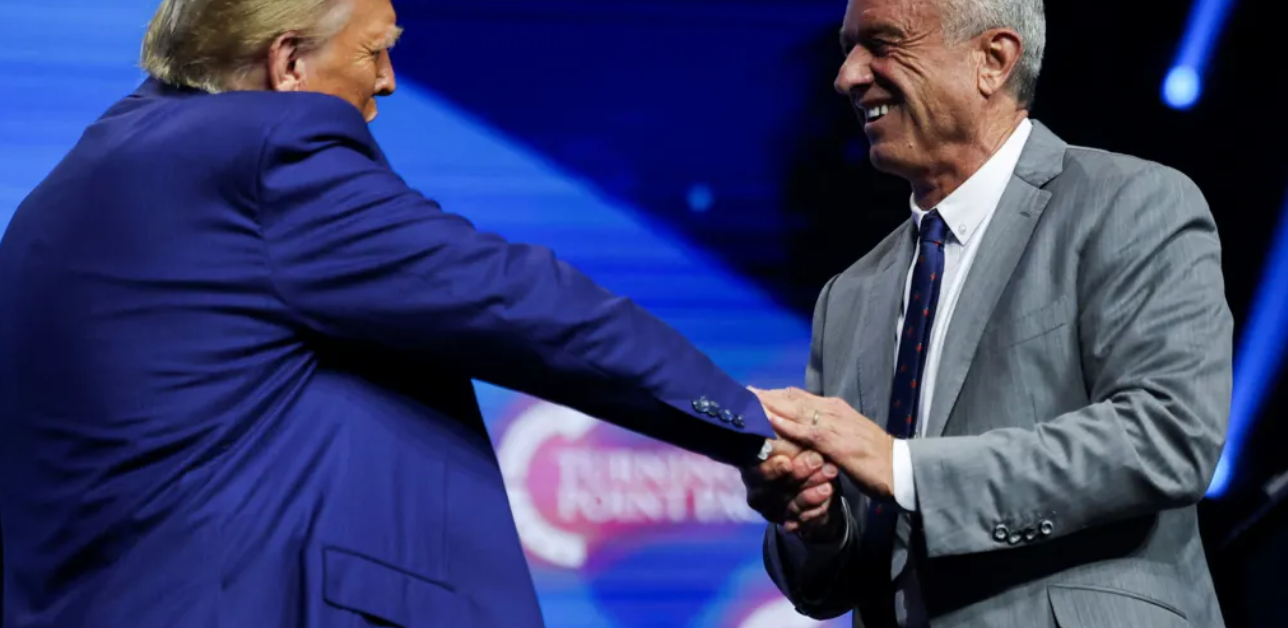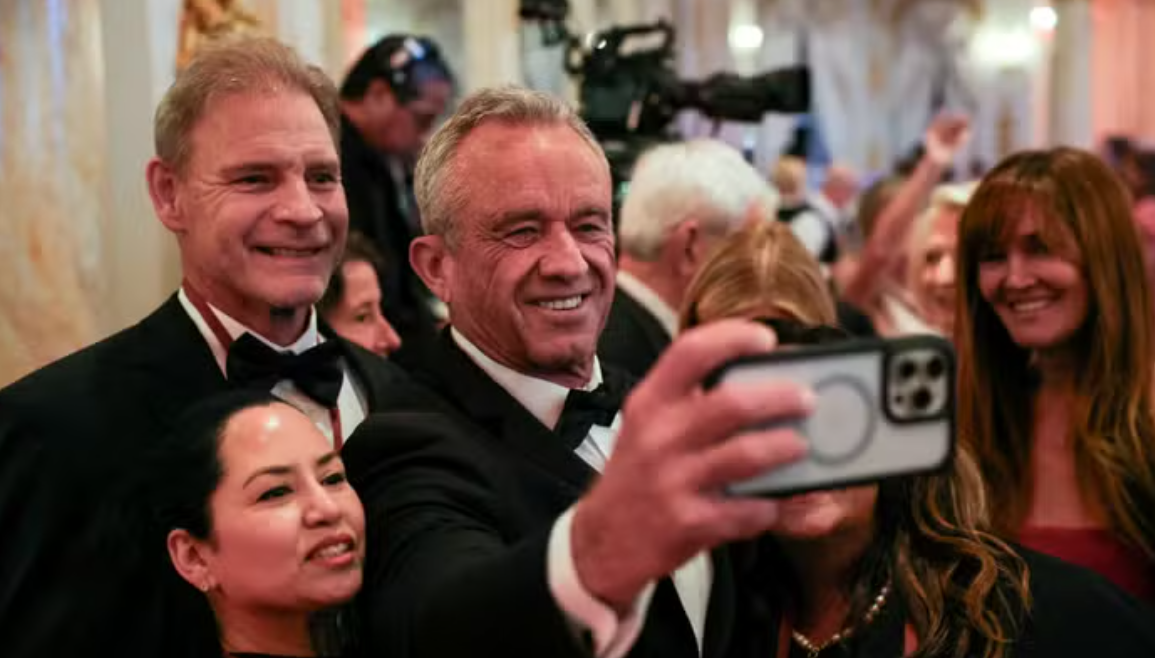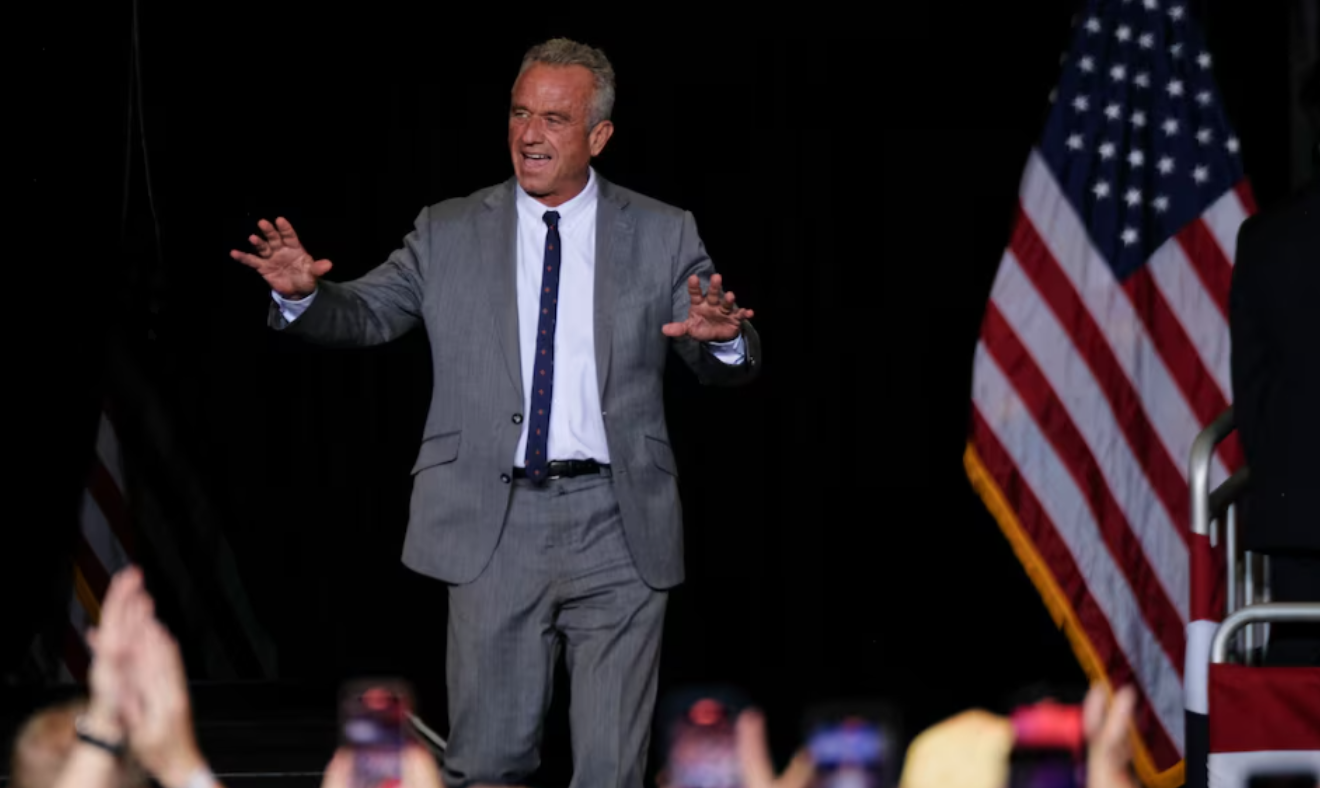By Charalampos Karouzos,
The nomination of Robert F. Kennedy Jr., with the slogan Make America Healthy Again (MAHA), as the next U.S. Secretary of Health and Human Services has sent shockwaves through the public health community worldwide. Announced by the elected U.S. President, Donald Trump, this appointment places a well-known but polarizing figure at the helm of one of the country’s most critical agencies. Kennedy’s track record of promoting debunked theories about vaccines and public health measures raises serious concerns about the future direction of U.S. health policy, risking that his slogan’s promise may ultimately go unfulfilled, to say the least.
Prior to examining the statements, one should first be acquainted with the person making those claims. As is readily apparent, RFK is a member of one of America’s most storied political families, with a legacy of public service stretching back generations. John Fitzgerald Kennedy’s descendant has built a reputation as an environmental lawyer and advocate, been lauded for his work in holding corporations accountable for pollution and advocating for cleaner water supplies. However, his foray into health advocacy has been marked by controversy and misinformation. His controversial views on vaccines and his embrace of pseudoscientific claims make him a troubling choice to lead the nation’s health infrastructure, at a time when public trust in health institutions is already strained.
As the founder of Children’s Health Defense, a non-profit organization with a mission to end childhood health epidemics by eliminating toxic exposure, Kennedy has repeatedly questioned the safety of vaccines, amplifying claims that have been thoroughly debunked by scientific research. Despite his insistence that he is not anti-vaccine(!), Kennedy’s rhetoric has fueled skepticism and mistrust, jeopardizing critical immunization programs domestically and worldwide. His inclination to challenge evidence-based medicine seems to be influenced by his desire to take advantage of the growing skepticism surrounding science in the U.S.A., a common key characteristic of the pre-election agenda of the re-elected president Trump.
Kennedy’s nomination is not just symbolic; it signals a potential shift in U.S. health policy that could have profound and far-reaching consequences, further than one can currently observe. His stated goals, such as combating chronic diseases and reforming health agencies, may sound appealing on the surface, a man going against the “BigPharm” as he has intented, but they are often undermined by his reliance on misinformation and his rejection of scientific consensus, collectivelly running against people’s right to health. While addressing current existing issues in healthcare is undoubtedly important, opposing established knowledge does not equate to challenging the system.

Kennedy’s most infamous stance is his criticism of vaccines, which he primarily claims are not adequately tested for safety, assertions that contradict overwhelming scientific evidence demonstrating the efficacy and safety of vaccines. His promotion of long debunked theories, such as vaccines causing autism (!) has already contributed to declining vaccination rates in some communities (particulalry of the MMR vaccine), proving the menacing formidable power statements of people in charge can have. Appointing someone with such views to lead the Department of Health and Human Services could lead to the resurgence of preventable diseases like measles and polio, with devastating consequences for public health. It is unfortunate but apparently necessary to highlight that: vaccination is unquestionably one of the most rigorously studied and life-saving advancements in healthcare, and limiting it will result in the pre-vacination state of the world, of widespread death and disability, particularly affecting children.
Furthermore, Kennedy has also voiced concerns about fluoride in drinking water, claiming it poses health risks, including arthritis, bone fractures, bone cancer, IQ loss, neurodevelopmental disorders, and thyroid disease; despite decades of evidence supporting that the natural occuring element is safe and effective in preventing tooth decay, with no connection with any of these diseases in the very low concentration found in drinking water.
His skepticism extends to ultra-processed foods, which he links unidirectionally to numerous chronic diseases. While it is true that diet plays a significant role in health outcomes, Kennedy’s focus on additives, lacks the nuance and scientific rigor needed to address the broader social and economic determinants of health. Diet can cause and has been linked to several chronic, especially metabolic diseases, but there are other important, and in this case neglected, factors that come into play. Advocating for wider access to less processed foods for all would benefit people, however, it is not the sole determinant. From this conversation a pivotal ethical question arises: should we live in a society which forces people in the dipole of high-end nutritious foods for the affluent and inadequate nourishment for everyone else?
Recently, in a video posted by the NYP of a press conference in 2023, he made the outrageous and scientifically unsupported claim that “Covid-19 is targeted to attack Caucasians and black people. The people who are most immune are Ashkenazi Jews and Chinese”. He continued by saying that “We don’t know whether it was deliberately targeted or not but there are papers out there that show the racial or ethnic differential and impact”. Following his public statements on the matter, he has linked the pandemic to bioterrorism by creating a “genetically engineered bioweapon that may have been ethnically targeted”, and calling the COVID-19 vaccine, the “deadliest vaccine ever made”. Numerous Health specialists state that these claims are false and deceiving, as there is no robust study that links the virus’s target with any specific ethnic group.
In addition to these statementes, Kennedy has framed his agenda as a fight against corruption in health agencies, calling for a return to “evidence-based science and medicine”. Ironically, his own track record undermines this goal. Such a rhetoric often prioritizes conspiracy theories over robust scientific evidence, and his criticism of health institutions risks further eroding public trust in these critical organizations, which is already challenged in the post-SARS-COV2-pandemic.

In a more general context, RFK’s statements have re-ignited the debate over how much power a single individual should wield in making critical public health decisions. Giving a single individual, regardless of his political beliefs, the jurisdictional power on pressing issues like chronic diseases, mental health, and health inequities can, on the one hand, accelerate decision making, minimize burocracy and bring forward policies faster, thus helping people in a more efficient manner. On the contrary, the presence of a regulatory committee, can better safeguard that decisions will be made aiming the common good, being based on a solid ground of evidence. It is paramount to note that, especially in the field of health, consequences of decisions cannot be observed in the short term and the efficacy or consequences of medical decisions will be a product of future societies.
The nomination of Robert F. Kennedy Jr. to such a critical position highlights the dangers of placing ideology over evidence in public health policy. A man with a track record of promoting misinformation, and distrust in scientific institutions, must be de facto considered ill-suited to lead the Department of Health and Human Services especially at a time when public health challenges are becoming increasingly more complex, in a developed country with a poorly performing healthcare system. It is essential for lawmakers, public health experts, and the US public to hold Kennedy accountable for his policies, which must be scrutinized to ensure they are rooted in evidence and serve the best interests of the population. Sacrificing safety, health, and lives at the altar of political gain is both ethically indefensible and widely criticized by the scientific community, with serious repercussions for both domestic and global health efforts. Public health cannot afford to be guided by misinformation and ideology; the stakes are simply too high.
The appointment of any individual deeply distrustful of science as Health Secretary, would mark a significant step backward for evidence-based health policy in the United States, with numerous transnational ramifications. Unsupported by facts, opinions threaten to unravel progress made over decades, putting people’s lives at risk. As this chapter in U.S. health policy unfolds, it is critical to advocate for leadership that prioritizes science, protects public health, and upholds the trust of the people it serves, as anything less is a disservice to the nation and the world.
References
- The appointment of Robert F Kennedy has horrified public health experts. Here are his three most dangerous ideas. The Guardian. Available here
- Anti-vax conspiracy theorist and JFK’s nephew: Who is Robert F. Kennedy Jr.?. Le Monde. Available here
- Fact-checking RFK Jr’s views on health policy. BBC. Available here
- Biography – Robert F. Kennedy, Jr.. Congress.gov. Available here
- Robert F. Kennedy Jr.’s Views onVaccination ‘Dangerous,’ Says His Ambassador Cousin. The New York Times. Available here
- Children’s Health Defense. Available here
- RFK Jr. says COVID may have been ‘ethnically targeted’ to spare Jews. The New York Post. Available here




